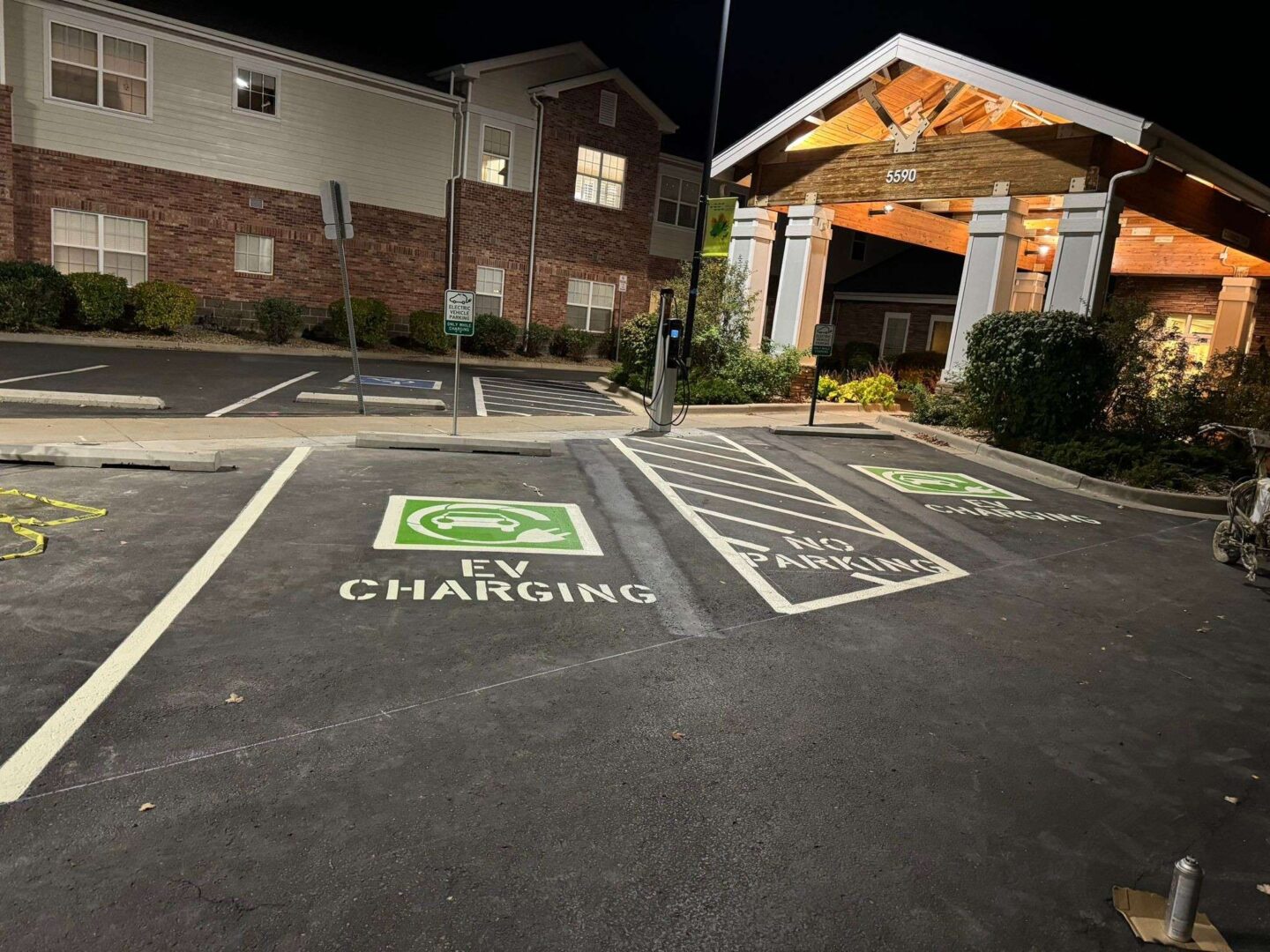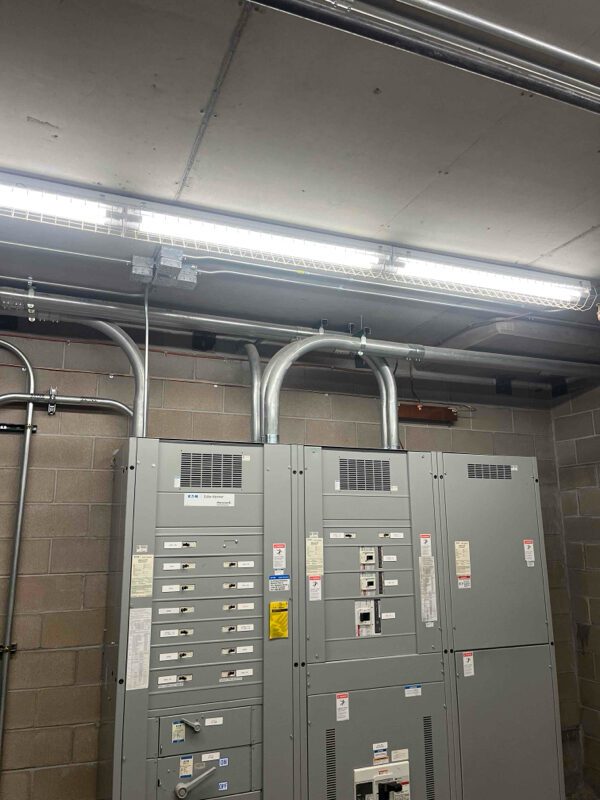Christian Living Communities, a senior living organization, aimed to enhance their residents’ quality of life by introducing modern amenities that align with sustainability and environmental responsibility. Located in Centennial, Colorado, the organization decided to install an electric vehicle (EV) charging station to support the growing number of residents who own electric vehicles (EVs).
This project involved the installation of a dual-port Level 2 ChargePoint charger with make-ready electrical infrastructure for an additional charger in the future. The design also repurposed existing parking spaces to ensure compliance with Charge Ahead Colorado’s EV access parking regulations. This initiative was completed as a full turnkey project, covering engineering, permitting, excavation, electrical work, and the charging station installation.

The total project cost of $66,500 was offset by a Charge Ahead Colorado Grant of $9,000 and a 30% Federal Tax Credit totaling $17,250, bringing the net cost down to $40,250.

1. Attracting More Residents:
The installation of EV chargers has become a desirable amenity for environmentally-conscious residents. By offering EV charging stations, Christian Living Communities can appeal to potential residents who own electric vehicles, thus enhancing the attractiveness of the community.
2. Boosting Environmental Image:
The adoption of sustainable technologies, such as EV charging stations, positions Christian Living Communities as an environmentally responsible organization. This move helps to align their community with the growing trend toward sustainability.
3. Convenience for EV Owners:
The charging infrastructure improves the convenience for residents who drive electric vehicles. It eliminates the challenge of finding external charging stations, providing peace of mind to EV owners and encouraging them to remain in the community long-term.
4. Potential Increase in Property Value:
With the rising popularity of electric vehicles, properties offering EV charging stations are likely to experience higher demand. This installation could contribute to a potential increase in property value over time as more people seek eco-friendly living options.
5. Commitment to Sustainability:
The installation of the EV chargers highlights Christian Living Communities’ dedication to sustainability. It demonstrates a commitment to adopting innovative technologies that help reduce the carbon footprint of their community.
The installation of EV charging stations at Holly Creek is a key step forward in integrating modern, sustainable amenities into the senior living community. By offering convenient charging options for residents, Christian Living Communities is not only meeting the needs of current EV owners but also positioning themselves as a forward-thinking, environmentally conscious organization.
This project showcases the impact of combining government incentives and tax credits with community-focused development, making sustainability both accessible and economically feasible for Christian Living Communities.